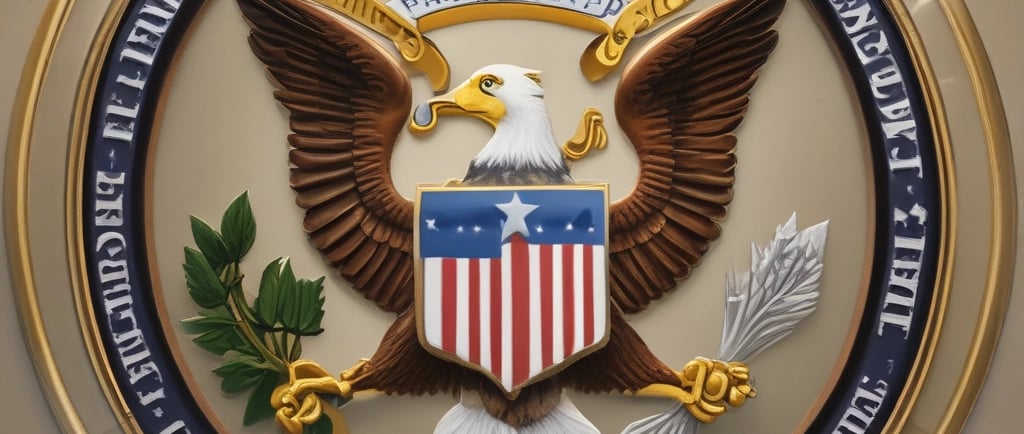Will Gavin Newsom Run for President of the United States?
POLITICS
Glenn Spillman
11/20/20255 min read


Gavin Newsom's Political Background
Gavin Newsom's political career began in San Francisco, where he served as the city’s Mayor from 2004 to 2011. During his tenure, he gained national attention for implementing progressive policies, most notably the legalization of same-sex marriage in California. His bold move to allow same-sex couples to marry in San Francisco in 2004 positioned him as a significant advocate for LGBTQ+ rights and propelled his political identity as a forward-thinking leader within the Democratic Party. This initiative highlighted his focus on equality and civil rights, catalyzing discussions on similar policies statewide and nationally.
Following his mayoral term, Newsom was elected as the Lieutenant Governor of California in 2011, a role that further solidified his political presence. As Lieutenant Governor, he participated in various initiatives aimed at bolstering California's economy and education system. His efforts to promote sustainable practices and renewable energy during this time reflected his commitment to environmental issues, shaping his reputation as a progressive leader dedicated to addressing climate change.
In 2018, Gavin Newsom ascended to the role of Governor of California. His governorship has been marked by significant challenges and moments of leadership, particularly during the COVID-19 pandemic and the state's ongoing wildfires. Newsom's response to the pandemic was characterized by a cautious yet assertive approach, implementing measures aimed at protecting public health while striving to maintain economic stability. His management of the wildfires has involved advocating for climate resilience and funding for emergency responses, highlighting his focus on environmental stewardship.
Throughout his political journey, Gavin Newsom has established himself as a prominent figure in California politics, earning a reputation as a leader who prioritizes social justice and environmental sustainability, which may lend momentum to his potential aspirations for higher office.
Recent Speculations and Rumors
The speculation surrounding Gavin Newsom's potential bid for the presidency has intensified in recent months. As the Governor of California, his visibility during significant national events has led to increased media scrutiny regarding his political intentions. Newsom himself has remained somewhat ambiguous in his comments, stating that while he is focused on his gubernatorial responsibilities, he has not ruled out a run for the White House. His nuanced responses often leave room for interpretation, contributing to the ongoing rumors surrounding his aspirations.
Political analysts have weighed in on the implications of Newsom's possible candidacy. Many view him as a prominent figure within the Democratic Party, particularly as conversations about the party's direction and leadership continue following the tumultuous events of recent elections. Statements from party officials suggest that there may be divisions within the party, creating a space for a new candidate who can rally support and unify various factions. Newsom’s progressive track record in California is often cited as a valuable asset that could appeal to both the party's base and moderate voters.
Furthermore, the changing landscape of national politics adds another layer to the speculation. With potential challengers like Vice President Kamala Harris and other established Democrats potentially seeking the nomination, Newsom’s supporters argue that he could present a fresh alternative that embodies modern liberal values and policies. The democratic primary process is notoriously complex, and with the political dynamics constantly evolving, observers are closely monitoring how these factors might influence his decisions
In light of recent developments, it remains crucial to examine how various influences, including public opinion, party dynamics, and Newsom's own political calculations, interact to shape the narrative surrounding his presidential ambitions.
Key Factors Influencing a Presidential Bid
Gavin Newsom's potential candidacy for the presidency hinges on a multitude of factors that can significantly shape his decision-making process. One primary consideration is his popularity among voters, which can serve as a crucial indicator of his electability. Polling data often reflects public sentiment toward potential candidates, and as such, understanding his approval ratings within California and beyond could provide insight into his broader appeal across the nation.
Another vital element is Newsom's fundraising capabilities. The ability to raise substantial funds is imperative for any presidential campaign, especially in the highly competitive Democratic primary landscape. Successful fundraising not only bolsters campaign infrastructure but also serves as a demonstration of support from donors and grassroots supporters alike. Assessing his previous fundraising efforts and the financial backing he could garner from prominent Democratic donors will be essential in evaluating his readiness for a presidential run.
Moreover, the existing competition within the Democratic party will undoubtedly influence Newsom's strategy. With established figures already in the race and new candidates potentially emerging, understanding the dynamics of the primary will be crucial. The political landscape often changes based on the announcements and endorsements of key players, making timing an essential component of any bid.
External factors such as the national political climate and the pressing issues facing the country at the time of a potential bid will also play a significant role in his decision. Factors related to economic conditions, social justice movements, and public health crises are likely to dominate the political discourse and shape the type of candidate voters seek. Finally, the advice and opinions of influential political figures and strategists can further impact Gavin Newsom's considerations, as their insights could provide guidance on the feasibility and timing of a presidential campaign.
Public Reception and Potential Impact
As discussions surrounding Gavin Newsom's potential candidacy for the presidency continue to evolve, public reception plays a crucial role in determining the feasibility and impact of his campaign. Recent public opinion polls indicate a mixed but generally supportive view of Newsom among Democratic voters. His popularity within California, where he has served as governor since 2019, contributes positively to his national image. Surveys show that many see him as a progressive leader capable of championing critical issues such as climate change and healthcare.
The media coverage of Newsom has greatly varied, with many outlets highlighting his governance style and his responses to pressing challenges like wildfires, the pandemic, and housing crises. Additionally, his approach to public health and social policies has garnered attention, resonating with many party members who emphasize the need for bold action on social justice matters. Conversely, some media narratives focus on controversies surrounding his administration, fueling skepticism among certain voter demographics.
Social media platforms also serve as a barometer for public sentiment, revealing both enthusiastic support and significant criticism. Trend analyses show that Newsom's posts on major social issues like climate initiatives frequently generate engagement and discourse, often positioning him as a leader among younger voters who prioritize these matters. Moreover, his narrative resonates well in critical swing states, where mobilizing voters on issues like healthcare affordability and climate policy could significantly impact election outcomes.
In contemplating the implications of a Newsom candidacy, it is essential to recognize how his campaign could influence discussions within the Democratic Party. His entry into the race might reshape party dynamics, necessitating contenders to address climate change and social equity more prominently. Overall, Gavin Newsom's potential bid for presidency hinges on the interplay of public perception, media portrayal, and social media engagement, signaling both challenges and opportunities for the upcoming elections.
Connect
Stay in touch with Ravens Nest Media Group
Call
contact@ravensnestmediagroup.com
916-420-0697
© 2025. All rights reserved.
